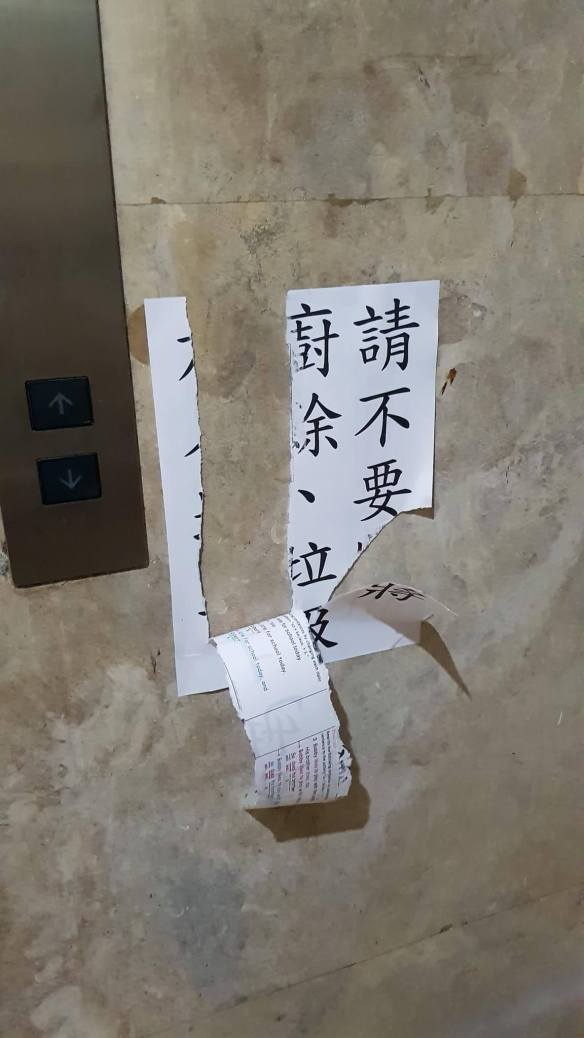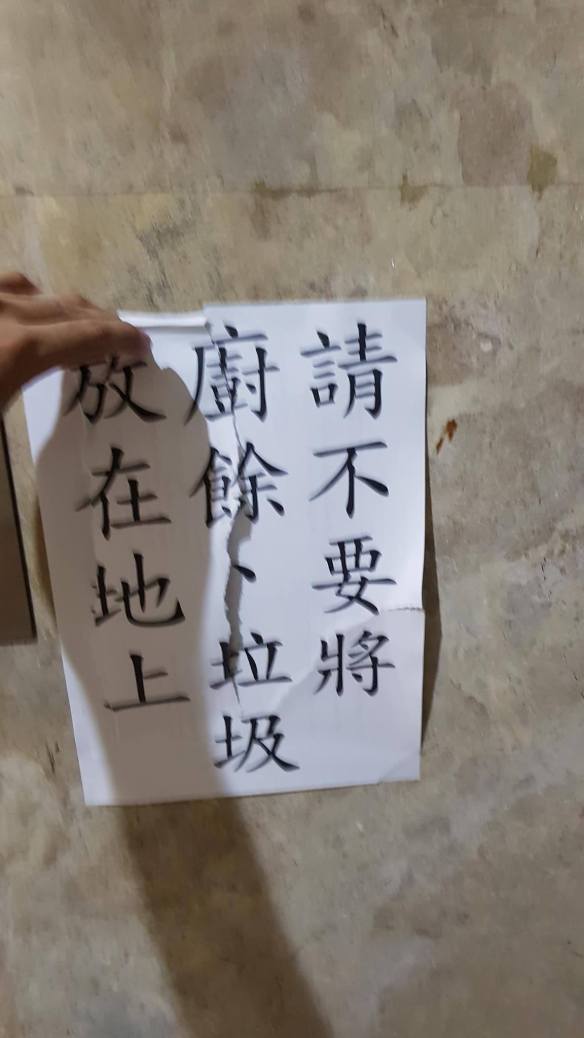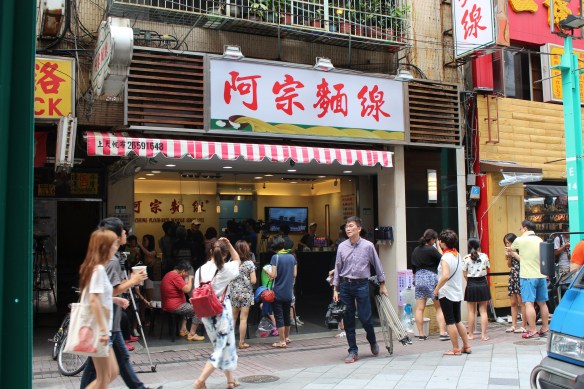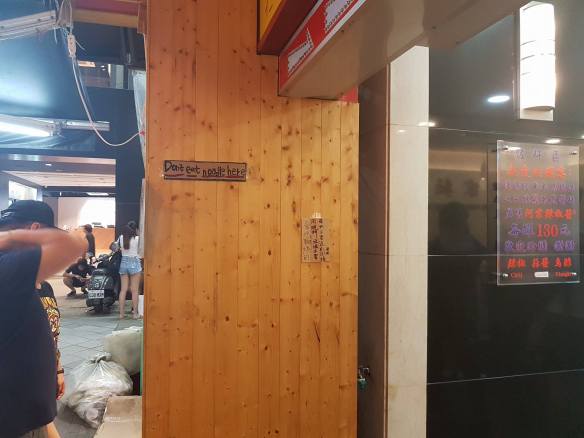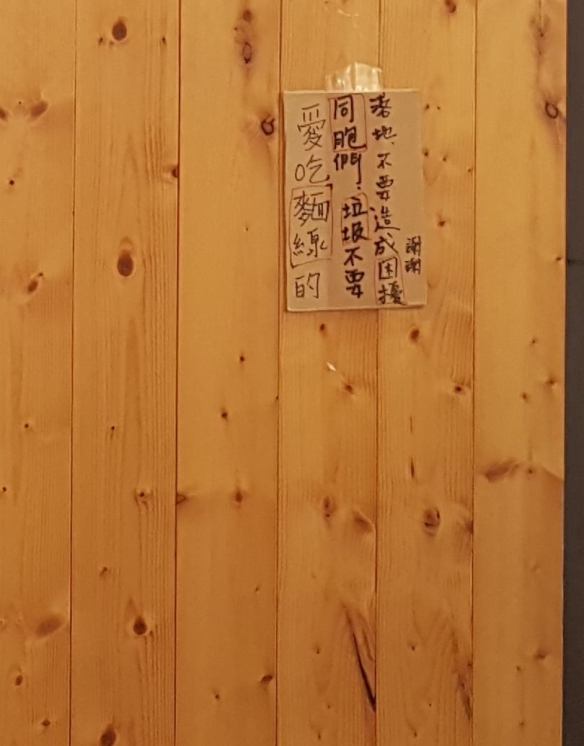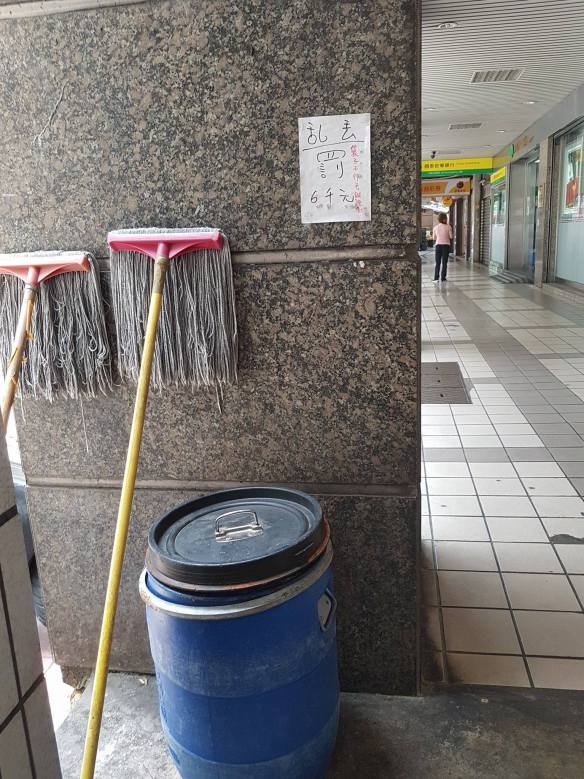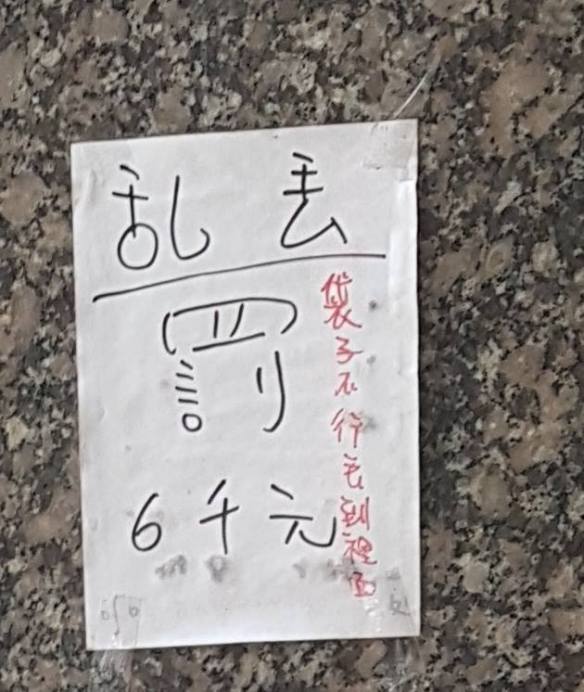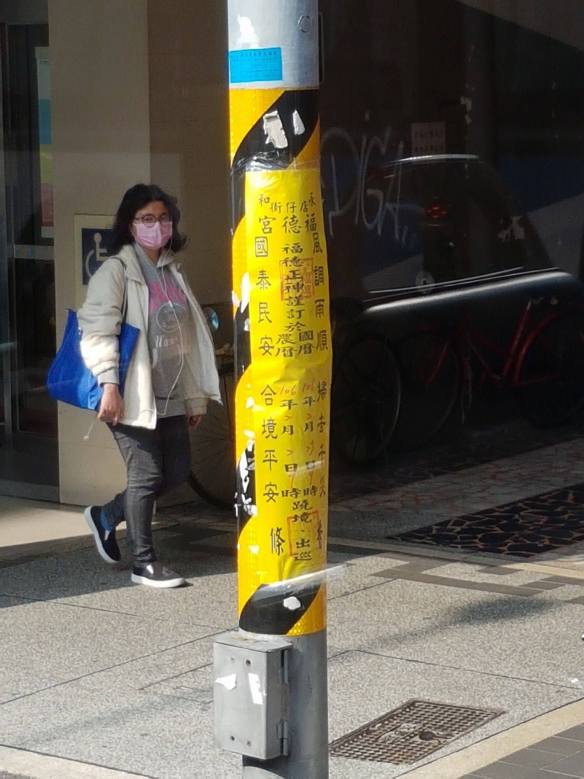As I’ve mentioned before, one of my neighbours is a prolific note writer who comes up with all sorts of imagined scenarios, from axe-wielding maniacs sneaking into the building to accusing people of chucking tapioca onto their awning and calling the fire brigade when anyone in a 400m radius lights a candle. A new neighbour has moved into the building, so the note writer has decided to show them who is boss, with these beautiful scrawls:

Despite their previous anger at people closing the door too loudly, the neighbour in question is continuing their tirade on the risks of the door ever being open at all. The new neighbour doesn’t have a buzzer, so has to come down the stairs every time they order food or (heaven forbid) have friends coming round.
請隨手關門,不要影响(響)別的住戶安全,如果發生意外,請負全責,後果自負。
Please close the door after you, so as not to affect the safety of other residents. If an incident happens, please take full responsibility. You’ll have to face the consequences.
One thing to notice is the abbreviation of the character 「 響」 to 「响」, the simplified character, which goes to show how often the more complex characters are abbreviated in Taiwan. One note is never enough though:

新搬來的住戶請注意我們公寓沒有聘請任何清潔人員。此處只能丟棄回收廣告紙,由好心住戶順便幫忙丟掉,不可以丟紙箱、塑膠袋、請自重。
The new tenant should be aware that our apartment block hasn’t hired any cleaning staff. Here you can only throw away recycled advertising leaflets, which one kind-hearted resident [clearly a self-reference] helps to throw away. It is not permitted to throw away cardboard boxes or plastic bags here. Please behave with more decorum.

